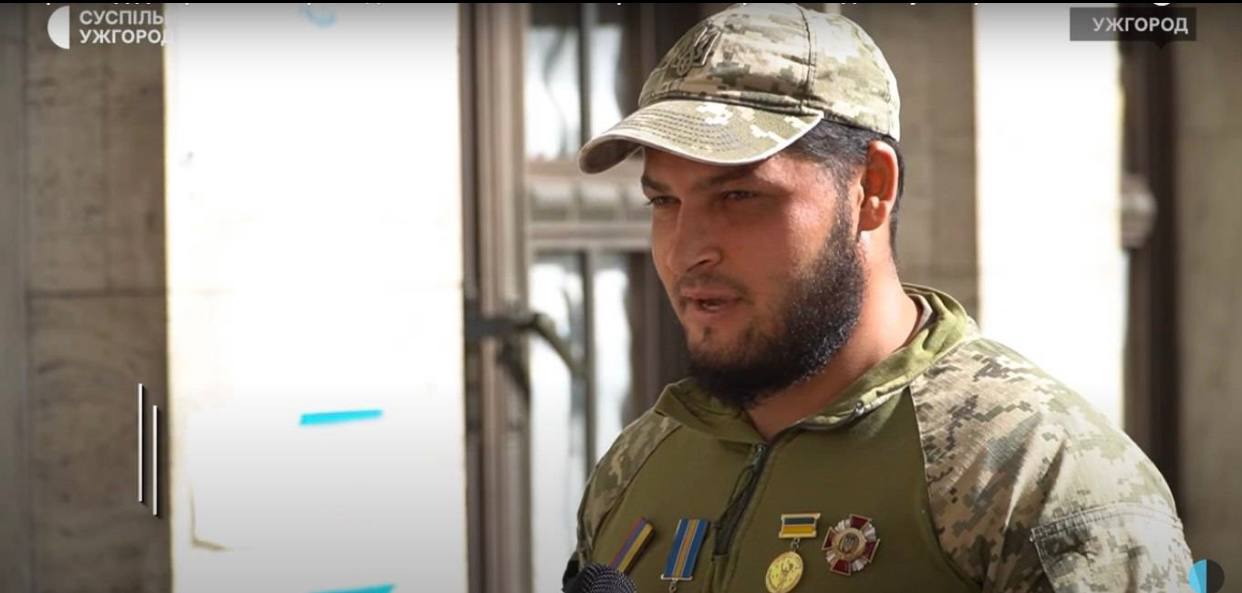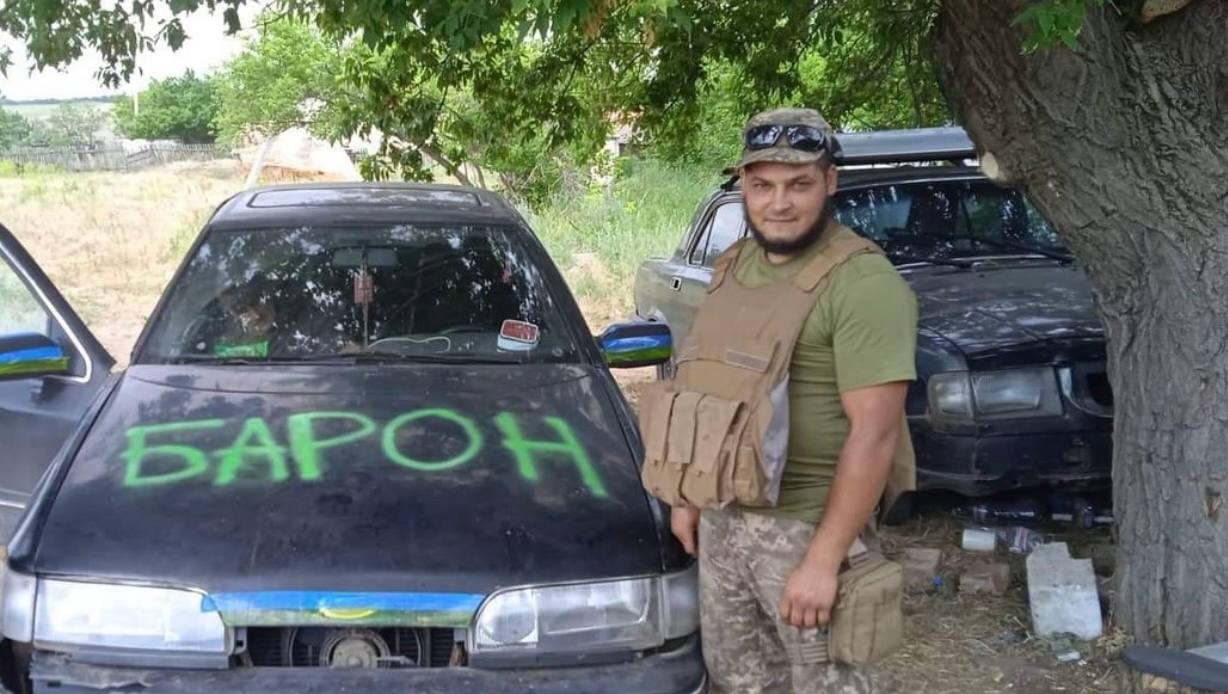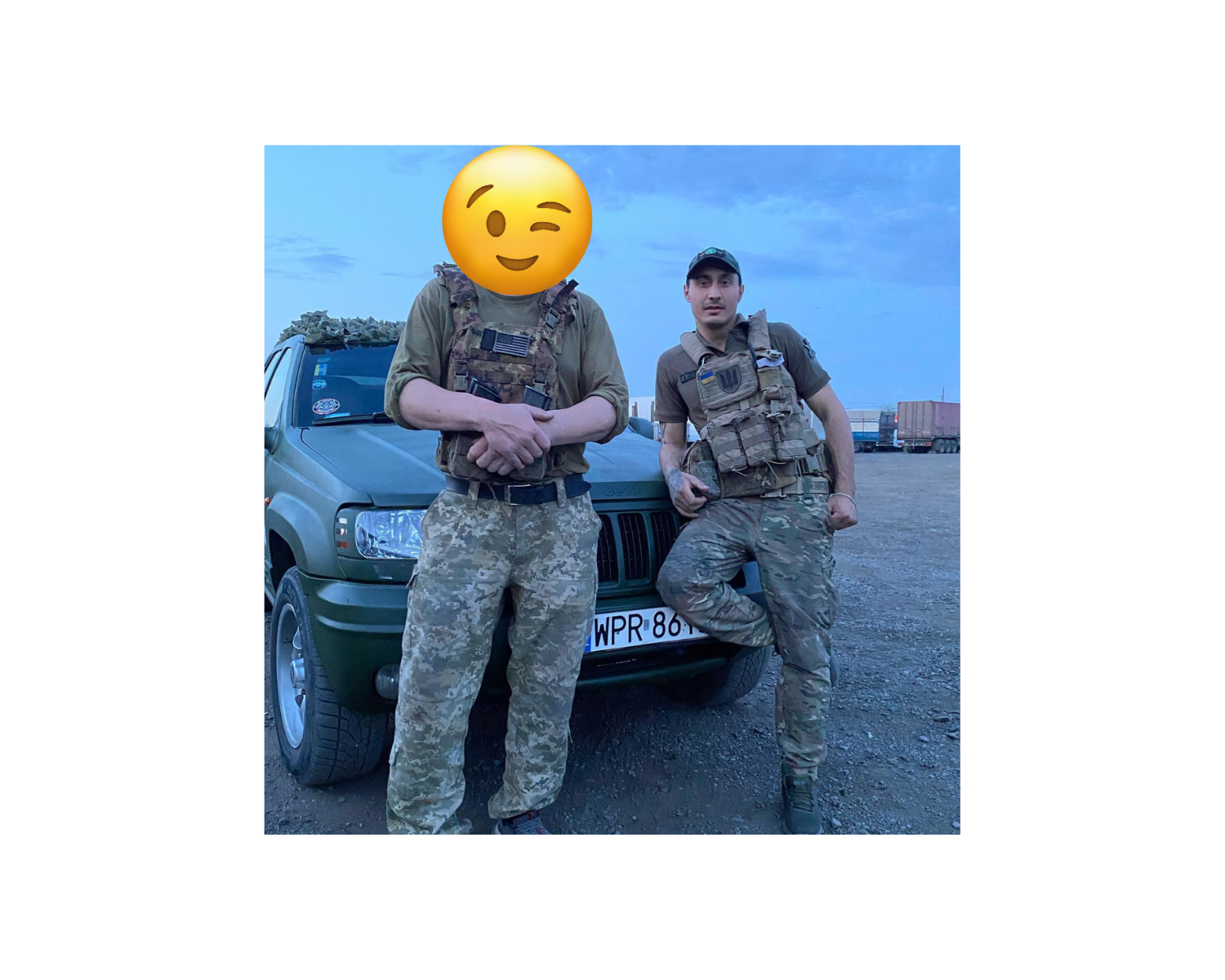They Serve Ukraine: Portraits of Roma Defending the State
The Janes information platform Illuminates a holistic view of communities in the modern space without stereotypes and prejudices. The project is a media component of the Agency for the Advocacy of Roma Culture (ARKA) - an institution that directs its efforts toward the development of the Romani youth movement, support and preservation of Romani history and culture, as well as the construction of intercultural dialogue in Ukraine.
The impressive successes of the Ukrainian army have come as a surprise to the whole world. The victory and professionalism of our defenders are truly impressive. And the understanding that most of the Defense Forces personnel are former civilians makes us admire them even more. The war has achieved something that we may not have been able to accomplish in years of independence - it has shown that the most important thing is not a person's nationality or skin color, but their actions and willingness to die for their homeland. Next, we will mention three stories of military Romani individuals who are defending Ukraine and are ready to sacrifice everything to liberate our land from occupiers.
There's no need to hide and fear death. We must go forward and do our duty - to defend the state.
Mykola Tomenko is a hero of our first story. Before the start of the full-scale invasion, Mykola was leading a normal life, working at a factory, driving a taxi, and being involved in entrepreneurship. The morning of the 24th of February became a turning point for him.
"I remember when rockets started flying over our city in the morning, targeting the oil refinery. On that day, there was a great deal of chaos, panic. People began to leave, gather, and head out of town. Just a couple of days later, I went to the draft board, but they wouldn't take me. They were enlisting former ATO (Anti-Terrorist Operation) soldiers, those who had already participated in combat. I was rejected twice. It was only on the third attempt, when they announced another additional mobilization, that I went voluntarily and decided that I needed to defend my country," says Mykola Tomenko.
.png)
(Mykola Tomenko / Photo provided by the information platform Janes)
The man doesn't hide the fact that his actions seemed strange to many of his acquaintances. They wondered why Roma would go to war.
"I went because I felt it was necessary. If I don't go, then who will? Many people are leaving the country, simply giving up, not caring. But if everyone leaves, then who will fight? So, it was my decision. I decided. All of my relatives were surprised, of course. Absolutely everyone. Well, that's okay. I'm setting an example that you shouldn't sit and hide. You shouldn't fear death; you should go and do your duty, just like everyone else. Why should some do it and others not?" - the man asks.
Despite all the difficulties, the warrior's belief in victory is unwavering. Mykola Tomenko dreams that one day this day will come. And after the victory, Ukraine will be able to rebuild all its cities and become one of the best countries in Europe.
"I believe in victory. But it won't come without effort. That's why all of us are here now on the frontlines. We are soldiers, volunteers, cooks, and everyone connected to the army. Everyone is thinking about victory, everyone dreams of it. And so do I. I also believe in victory. I believe that sooner or later it will come. I would like, after the victory, for us to rebuild all the cities, absolutely everything in Ukraine. To see Ukraine change and become one of the top five countries in Europe and beyond. To ensure good salaries and pensions for the people. And for the government not to forget about the veterans. And for our children to live well," dreams Mykola Tomenko.
At war, there is no difference - whether someone is Romani or not. Everyone is equal.
The hero of our second story is Viktor Ilchak. Before the war, he worked as a loader in Uzhgorod. In 2015, Viktor was called up to the military enlistment office, where they wanted to conscript him. However, he refused and decided to enlist as a contract soldier. He says that he has something to compare it to.
"We defended, as before, sitting in trenches. That's in Volnovakha and Mariupol, for example. But when the full-scale war began, when I saw combat actions in Volnovakha, I thought it was all over... I wouldn't come back home alive and well. My wife and children were crying. They saw on television that the war had become serious. Air raid sirens were sounding in Uzhhorod," Viktor recalls.

During this time, the soldier managed to accomplish such a number of heroic deeds that he even received a medal personally from the President of Ukraine, Volodymyr Zelenskiy.
"When the BMP-2 was hit, it was in Volnovakha, and I was awarded for that. For the injuries and for saving people, my comrades. I quickly left with my comrades. They awarded me a third-class medal. That's the first award. But there's also a second one that they gave me in 2016, also the same. Of course, in war, there's no difference whether you're Romani or not, or whoever you may be. Everyone is equal. But when I signed the contract in 2014, they were surprised that a Romani person was continuing to serve. They used to call me not Romani but a Gypsy. And they got used to calling me that, and we became friends. After all, we're all normal people," Viktor Ilchak mentions.

(Viktor Ilchak / screenshot from the page of "Suspilne Uzhgorod")
Viktor is eagerly awaiting victory and has a clear vision of what it should be like.
"They won't send me to the front line anymore. I'm no longer fit for military service because of my injuries and concussion. Now I work on the training ground as an instructor, teaching people. I train those who are conscripted into the Armed Forces through the military enlistment offices. We train them and send them to the front lines. Honestly, when the war ends, I would either work or somehow plan to continue serving as a soldier. The main thing is for the war to end and for people to live normally, to return home to their families. Ukraine is Ukraine, and it will remain Ukraine," says Viktor Ilchak.
(Viktor Ilchak / Photo provided by the information platform Janes)
Do everything for the sake of victory. Work, rebuild, and help people.
The third story is about the military Romani, Oleksii Kutmyzyrov. He volunteered for the front and carries out a very challenging but crucial mission in the armed forces.
"This is the first medical volunteer hospital... We have 'Black Dolphin' and 'Black Tulip,' which dealt with the so-called 'cargo 200.' There were 'two-hundred' people on the occupied territory, and we dealt with these 'two-hundred.' Then I moved on to 'three-hundred,' and we started taking care of the 'three-hundred' people. Bakhmut, Sloviansk, and all the hotspots," Oleksii explains.
Before the war, the man worked at STO and was involved in painting cars in his hometown of Pavlohrad. Why did he, as a Roma, decide to volunteer for the front?
"I had a friend who was in the 'Azov' battalion. I was friends with him, and I was curious about it. I went to training with him back in 2016. I underwent training as a combat medic. Later, due to some issues, I found it uncomfortable to work with them, so I left. But when the full-scale war began, I accidentally ended up with the guys. They came to my base where I worked, needing assistance. We became friends, and I started repairing their medical vehicles. There was a situation when they didn't have enough people for a mission, and I went instead of the missing person. That's how the deployments started. I stayed with them. In Pavlohrad, I have my own repair brigade. We work with the military and restore vehicles for them. It's my hobby. My guys work there, and I'm mostly on deployments. There was a time when I would visit the guys, and we'd talk to other battalions. They would ask, 'Lyosha, are you Romani?' I would say yes. And they would say, 'You're not Romani; you're some kind of Euro-Romani.' Nobody understood who I was. They thought maybe I was Azerbaijani, but definitely not Romani," recalls the man.

(Oleksii Kutmyzyrov / Photo provided by the information platform Janes)
We asked Oleksii if the participation of Romani individuals in the war could change the perception of the community among other Ukrainians.
"It's generally difficult. The Romani community isn't very well-off. You know, two people doing good deeds or twenty people making headlines... somewhere something was stolen, somewhere something was beaten... It will be very hard. Many people who know me, like Nadiya Savchenko (a member of the Ukrainian Parliament, Hero of Ukraine), she repairs her car at our repair base. I have a lot of people I communicate with, and they can't understand how I, being Romani, can be involved in something and do something. My father works as a mechanic with me at the Pavlohrad repair base and is involved in military affairs. My mother is in Poland. And everyone is only for victory. There are no questions like 'Why did you go?' It's only for it. And they worry when I'm on deployments because sometimes, as we pass the frontline and work at points where the guys are already waiting for us, we pick up the guys and take them to the hospital. I have a brother who is incarcerated. I've been to prison and talked to the people there. I told them, 'Guys, don't become soldiers, but do everything for victory. Help and do your job. Help people rebuild. Because there will be a lot of work. Stealing and taking away - anyone can do that. But doing everything that will be beneficial to the cause - not everyone can do that.’ I say the same to our people. Work, rebuild, and support," says Oleksii Kutmyzyrov.
The soldier believes exclusively in the ultimate victory over the enemy, the return of everything that belongs to Ukraine, and is not willing to settle for less.
- "I will continue my military service. I don't know exactly how, but the battalion will continue. I have a repair base for the military. We will restore equipment, we will rebuild all vehicles, and we will build everything," hopes Oleksii.
During the time of the war in Ukraine, we have realized many things. For example, we've learned that freedom is worth fighting for, and we may have to die for it. It doesn't matter who has your back at that moment; what matters is that there is someone by your side. But after victory, we will all return to our homes and engage in rebuilding, earning a living, educating our children, and more. At this moment, it is crucial not to forget the painful lesson of this war. The most important thing is a person's actions, not their nationality, religion, or skin color. We are all Ukrainians, and we don't have a spare country. We all need to rebuild this unique and irreplaceable one together.
The material was created with the support of Media LifeLine Ukraine. Listen to the conversation in the attached audio file in its entirety.
See also
- Стереотип замість культури: як TikTok спрощує ромську ідентичність
- Як роми захищають Україну під час війни
- День Конституції України. Боротьба за права і свободи триває
- Януш Марковський: ром, воїн та батько. Війна навчила цінувати кожну хвилину миру
- «Навіть уборщицею не хотіли брати, бо я — циганка»
- «Коли любиш — можеш і критикувати»: як німкеня Сара Райнке стала патріоткою України
- Табір «Баро Гудло»: як деякі жарти принижують
- Письменник мандрів та дороги. Ким був Матео Максимов для французьких ромів
- Життя ромів в об’єктиві авторки Єви Райської
- Роми в літературі: як їх зображували українські письменники Іван Франко та Марко Черемшина